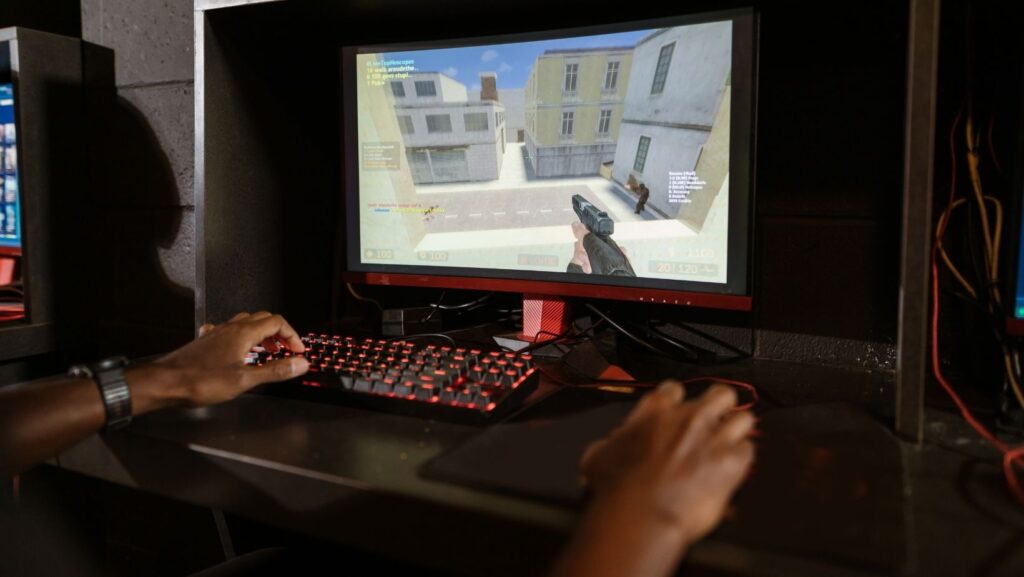Online gaming has transformed into a global industry, attracting millions of players across platforms. While the growth of this sector offers convenience and accessibility, it also opens the door to a range of security and privacy challenges. Understanding the threats and knowing how to protect yourself is essential for anyone who spends time playing online games or using casino platforms.
Common Security Risks in Online Gaming
Cybercriminals often see online gamers as easy targets due to the popularity of gaming platforms and the sensitive data involved. One of the biggest threats is account hacking. Attackers use phishing emails, fake login pages, or malware to steal player credentials. Once inside, they can drain virtual assets, sell accounts on black markets, or even access linked financial information.
Distributed Denial of Service (DDoS) attacks are another issue. Competitive players, particularly in eSports, have been victims of these attacks, which overload servers and force opponents offline. This has real consequences when tournaments or streamed matches are involved.
Malware hidden in unofficial downloads is also widespread. Players looking for “free” versions of games or add-ons can end up installing software designed to steal information or monitor keystrokes.
Privacy Concerns in Gaming Platforms
Beyond outright hacking, privacy is a growing concern. Many online games collect personal data such as email addresses, payment details, and in some cases, location information. Data leaks can expose this information, leading to identity theft.
In multiplayer games, voice chats and in-game messaging create additional risks. Harassment and doxxing—where personal details are shared publicly—are real dangers. Gamers have reported incidents where adversaries traced them outside the game environment by exploiting leaked details.
Another overlooked risk comes from weak licensing or unregulated platforms. Some gaming websites do not provide transparency on how they handle data. Without strong regulation, users have little recourse if their information is misused.
How Players Can Stay Safe
A strong defense begins with personal habits. Using unique, complex passwords for gaming accounts and enabling two-factor authentication (2FA) significantly reduces the chance of unauthorized access. Free password managers can help players generate and remember secure credentials.
Keeping devices updated is another simple but crucial step. Game clients, operating systems, and antivirus software should always run the latest versions. Many updates include security patches that fix vulnerabilities exploited by hackers.

The same level of caution applies to casino gaming, which is now a major part of the wider online gaming landscape. Players engaging with slots, poker, or live dealer games should be extra mindful when choosing where to play.
A platform like Slotsoo takes care of this for interested players by reviewing casinos, verifying licenses, outlining bonuses, assessing payment methods, and evaluating game selections. Having this kind of trusted guide makes it far easier to avoid unsafe sites while still enjoying a secure gaming experience.
The Role of Payment Security
When money is involved, payment security becomes a priority. Trusted gaming platforms usually support multiple secure payment methods. E-wallets like PayPal, Skrill, or Neteller add an extra layer of safety because users do not need to expose bank details directly.
In addition, many platforms now use advanced fraud detection systems. These monitor transactions in real time to flag suspicious activity. Players should always double-check that the website they’re using has visible SSL certification, this can be spotted by the padlock icon in the browser bar.
Cryptocurrency is also entering the scene, offering anonymity and secure blockchain-based transactions. However, players need to balance this benefit with volatility concerns.
Real-World Examples of Security Breaches
Security incidents in gaming highlight why caution is necessary. In 2020, popular game developer Capcom suffered a ransomware attack that exposed sensitive corporate and player information. The same year, over 300,000 Nintendo accounts were compromised, forcing the company to reset user passwords.
Sony’s PlayStation Network is another major example, with its 2011 breach affecting over 70 million users worldwide and leading to a lengthy service outage. More recently, Electronic Arts was targeted in 2021 when hackers gained access to valuable source code and internal tools, showing how even large companies can be vulnerable.
Final Thoughts on Staying Protected
Security and privacy in online gaming cannot be overlooked. While threats are diverse, ranging from malware to identity theft, there are practical steps players can take to protect themselves. Strong account protection, careful platform selection, and awareness of data handling policies all contribute to a safer gaming experience.
Players should also remember the importance of monitoring their accounts regularly. Unusual login attempts, sudden password resets, or unexpected purchases can be early warning signs of compromise.
Using secure networks instead of public Wi-Fi further reduces risks, as does limiting the amount of personal information shared in-game or on forums. By staying proactive, gamers can enjoy their favorite titles with greater peace of mind, knowing they are better equipped to defend against evolving digital threats.


